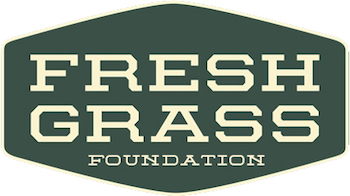In Memoriam: Folk Alley Remembers Dr. Bernice Johnson Reagon, Happy Traum, and Tom Prasada-Rao

In the past couple of weeks, our world has been diminished by the deaths of Dr. Bernice Johnson Reagon, Happy Traum, and Tom Prasada-Rao. Although their voices may now be stilled, they will never be silent, for their passion for making this world a better place through music lives on in their songs. Each of them believed music had the capacity to change the world and to offer hope and solace to the suffering and the hopeless and that it could foster community and encourage folks to gather to serve a common cause.
###
Born in Dougherty County, Georgia, Dr. Bernice Johnson Reagon (October 4, 1942-July 16, 2024) had music in her bones, singing a cappella in church as a young girl. By the time she was 11, she was singing in the Mt. Early Baptist Church gospel choir where she began to learn the ways in which the spirituals expressed not simply a desire for a more perfect other world but, more importantly, a quest for justice in this world. She attended Albany State College (now Albany State University) where she became active in the Student Nonviolent Coordinating Committee (SNCC) and was one of the founding members of the Freedom Singers in 1962. Recognizing that collective singing could unify the various groups working in the Civil Rights Movement, the Freedom Singers also realized that music was a catalyst for change and arose as a spiritual and political force in the 1960s through singings songs such as “We Shall Not Be Moved” and “Ain’t Gonna Let Nobody Turn Me Around.”
In 1975, Reagon received her PhD from Howard University, and she also worked as a cultural historian in music history at the Smithsonian Institution and as a curator of music history for the National Museum of American History. Reagon’s publications include We Who Believe In Freedom – Sweet Honey In The Rock: Still on the Journey (Anchor Books, 1993) and We’ll Understand It Better By And By: Pioneering African American Gospel Composers (Smithsonian Press, 1992). She also recorded several albums for Folkways Records, including Folk Songs: The South, Wade in the Water, and Lest We Forget, Vol. 3: Sing for Freedom. The Freedom Singers’ song “Ain’t Gonna Let Segregation Turn Me around Now” is included on 1963’s now-classic Broadside Ballads, Vol. 1 (Smithsonian Folkways). In 1973, Reagon founded the all-female a cappella group Sweet Honey in the Rock. Reagon devoted her life and career to social justice and civil rights and to advocating music’s transformative power.
When he went to the High School of Music and Arts in Manhattan, Happy Traum (May 9, 1938-July 17, 2024) wasn’t planning of a career in music. His life changed when he and some of his friends went to see Pete Seeger in concert. After that night, he started learning to play guitar and 5-string banjo, taking lessons from guitarist and songwriter Brownie McGhee. By the early 1960s Traum was making his way down to Washington Square Park on Sunday afternoons where folk musicians gathered in small circles all around the park playing bluegrass, old-time music, or folk music. Traum there met other musicians such as Mike Seeger, Eric Weissberg, Tom Paley, and John Herald. In 1962, Happy joined the New World Singers (Gil Turner, Delores Dixon, Bob Cohen), and in 1963 they gathered in the Folkways Records studios with other folk musicians including Pete Seeger, Phil Ochs, and Bob Dylan to record Broadside Ballads, Vol. 1 to commemorate the folk music publication Broadside. On that album the New World Singers performed the first recorded version of Dylan’s “Blowin’ in the Wind.”
Happy made a number of albums with his brother Artie, including Happy and Artie Traum (1970) and Double Back (1971). Although Artie died in 2008, Happy kept his brother’s spirit alive by including songs that he and Artie wrote or performed together on his solo records. In 1967, Happy Traum and his wife, Jane, moved to Woodstock, New York, and they soon started Homespun Tapes, a series of recorded lessons from which students could learn various styles of playing on various instruments from a wide range of instructors. He also published Fingerpicking Style for Guitar, which remains in print today, and he went on to publish others, including Bluegrass Guitar and The Blues Bag. Happy Traum was a songwriter, singer, and instrumentalist whose grace and generosity enlivened not just his music but the community around him.
In May 2020, Tom Prasada-Rao (April 11, 1958-June 19, 2024), ravaged by cancer and reeling from his chemotherapy treatments, turned on the television, witnessed the protests over the murder of George Floyd, and was heartbroken. He wrote the tender, elegiac “$20 Bill (For George Floyd),” and its message resonated deeply with listeners. NPR listed it as one of the 50 protest songs that defined 2020 and over 100 artists recorded it.
Born in Addis Ababa, Ethiopia, Prasada-Rao grew up in Takoma Park, Maryland, where he learned piano and violin. In high school he picked up guitar, which became his primary instrument, and he became known for his use of open tunings and his deeply soulful playing and singing. In 1993, he was one of the winners of the Kerrville Folk Festival’s New Folk Competition, along with Tom Kimmel and Michael Lille. The three formed the Sherpas and performed for over three decades. In addition to songwriting and playing, Prasada-Rao also produced records. He taught music at White Rock Montessori in Dallas, and for eight years he was the songwriting teacher at the University of Virginia’s Young Writers’ Workshops. He’s been called by many a musician’s musician and his music has been compared to Marvin Gaye’s George Benson’s, and Grover Washington, Jr.’s. Prasada-Rao’s vision for music as an agent of social and spiritual change endures.



